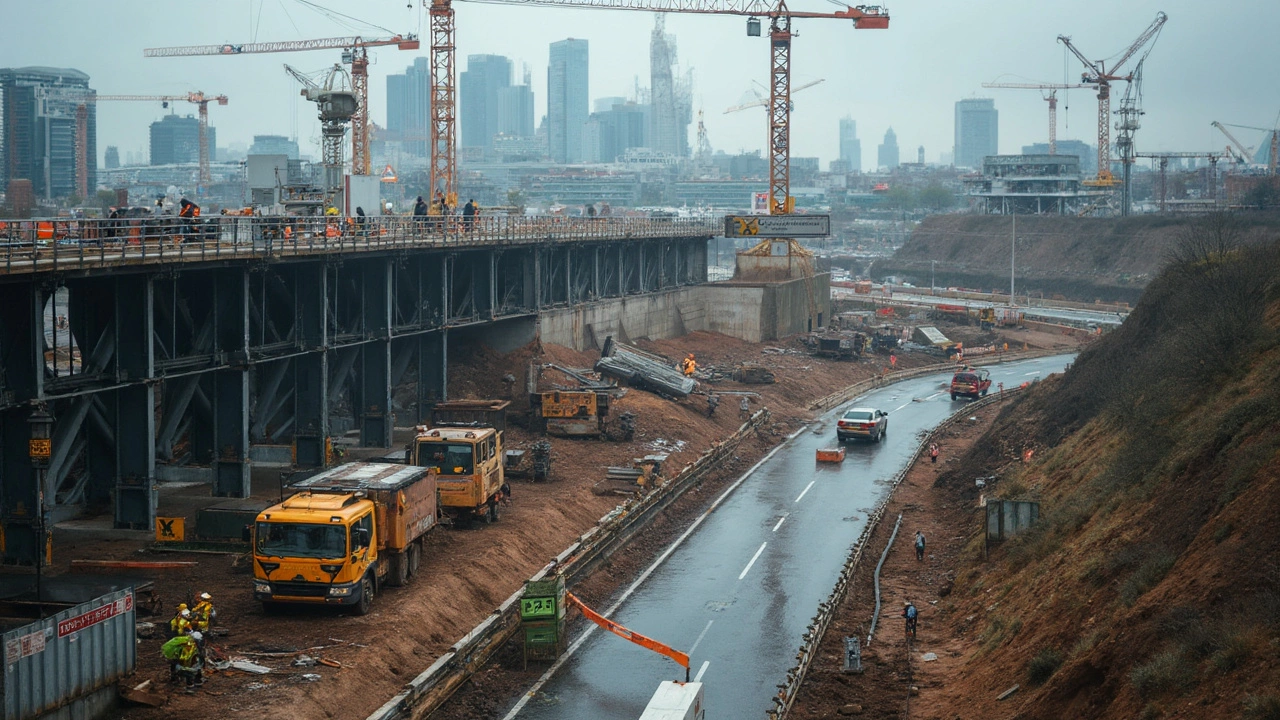Civil Projects: What They Are and How to Get Them Right
When you hear "civil project" you probably picture roads, bridges or big construction sites. In reality, civil projects cover anything that builds or improves the ground‑level infrastructure – from a new driveway to a full‑scale commercial build. Knowing the basics helps you avoid costly guesswork and keeps everything moving smoothly.
Common Types of Civil Projects
Most civil work falls into a few clear groups. Residential foundations, driveways and patios are the everyday side of it. Larger jobs include public roads, footpaths, drainage systems, and utility installations like gas or electricity lines. Commercial projects add extra layers – think warehouses, office blocks, or shopping centres that need heavy‑duty flooring and solid sub‑structures.
Key Steps for a Smooth Civil Project
First, do a proper site assessment. Check soil type, water table and any existing structures. Bad soil can cause settlement, which means cracks later on. Next, get the right permits. Local councils in the UK require planning permission and building regulations approval for most civil works. Skipping this step can halt your project and add fines.
After paperwork, sketch out a clear timeline and budget. Break the job into phases – excavation, foundation, groundworks, and finishing. Assign realistic dates and add a small buffer for unexpected weather or delivery delays. Keeping a simple spreadsheet helps you spot overruns early.
Excavation and ground preparation are the foundation of any civil project. Remove debris, level the ground and compact it properly. If you’re laying a new floor for a commercial space, make sure the sub‑floor is flat and moisture‑free. This is where many projects go wrong – a weak base can lead to uneven floors, squeaks, or even structural failures.
When you reach the foundation stage, choose the right material. Concrete is the go‑to for most builds, but steel reinforcement may be needed for larger spans. Talk to a structural engineer if you’re unsure; their calculations can save you from future repairs.
Managing costs means watching both material prices and labour rates. Bulk ordering of concrete or timber often gets you a discount, while hiring a reputable contractor eliminates hidden mark‑ups. Ask for itemised quotes and compare a few options before signing.
Working with experts like First Choice Flooring Solutions can make a big difference. Their team knows how to integrate flooring choices with civil works, ensuring the sub‑floor is perfect for hardwood, luxury vinyl plank or carpet. They also handle any required damp‑proofing, so you avoid mould issues down the line.
Quick checklist before you start:
- Site survey completed and soil test done
- All permits secured
- Clear timeline with a 10% time buffer
- Detailed budget and itemised quotes
- Sub‑floor prepared and moisture‑tested
- Professional flooring installer on board
Follow these steps and you’ll keep your civil project on track, on budget, and free from nasty surprises. Ready to start? Talk to a local contractor today and get a solid plan in place.
Heavy Civil: What Really Counts in Commercial Construction
- Gavin Whitaker
- |
- |
- 0
Wondering what 'heavy civil' means in construction? This article breaks down exactly which projects qualify, like highways, bridges, and water treatment plants—plus why it matters for bidding, safety, and costs. Get practical tips to spot heavy civil work on job sites and learn why these projects have their own rules and challenges. Find out what sets them apart from regular commercial buildings, using plain and clear language. Anyone in the construction field or just plain curious will understand what’s really behind the term 'heavy civil.'
View more